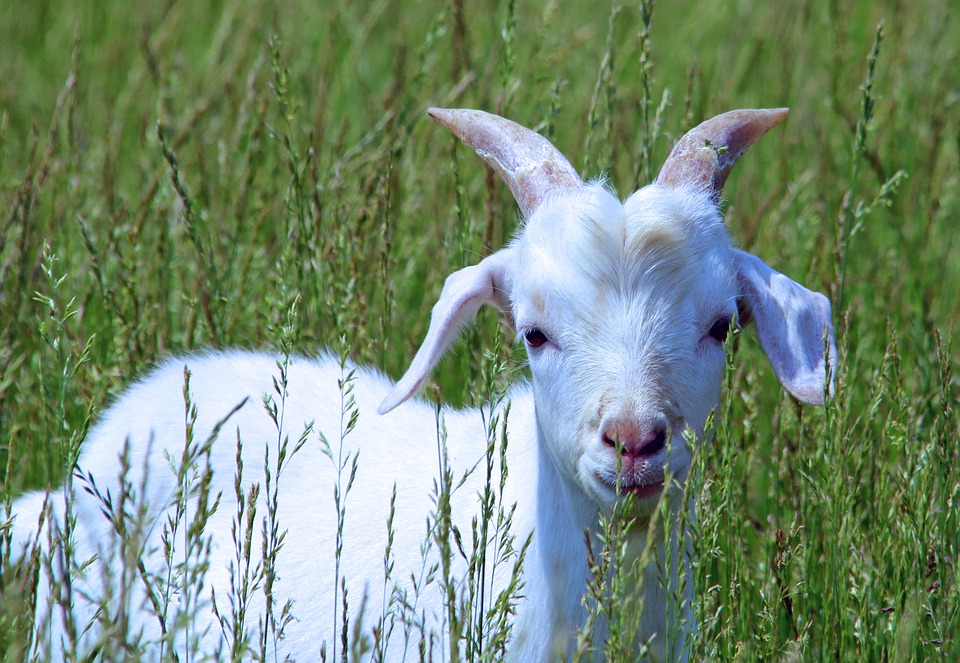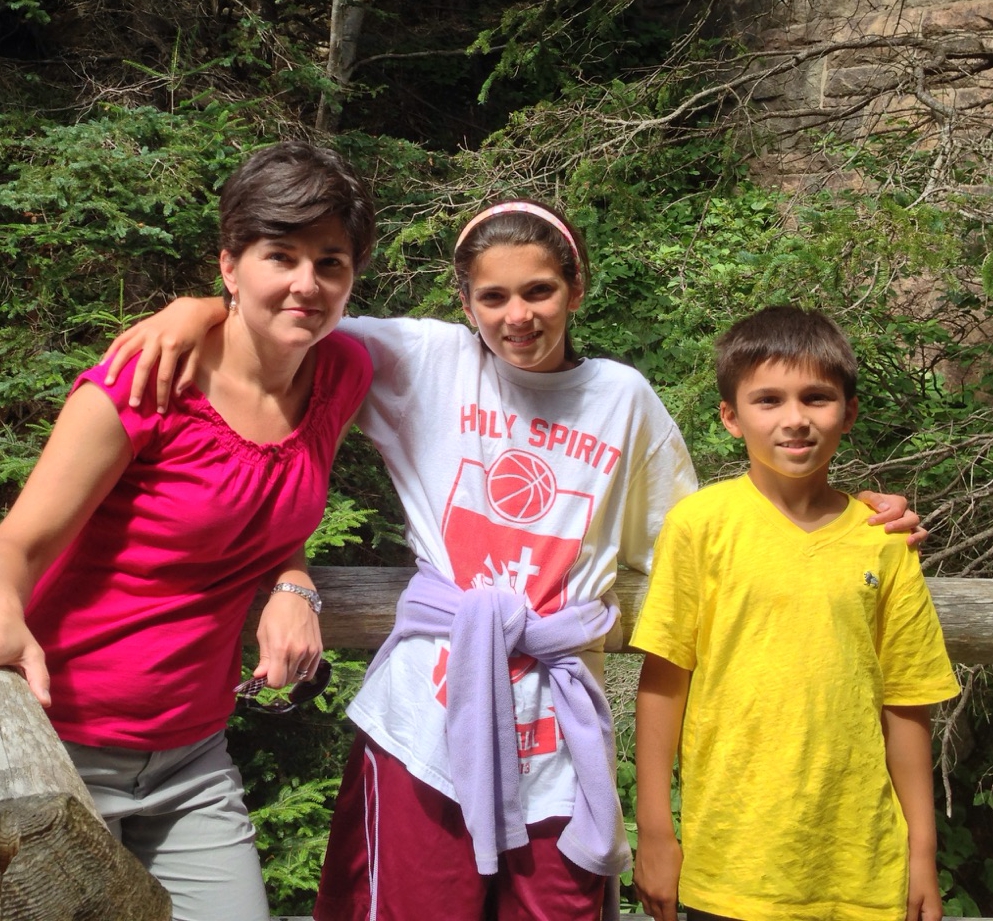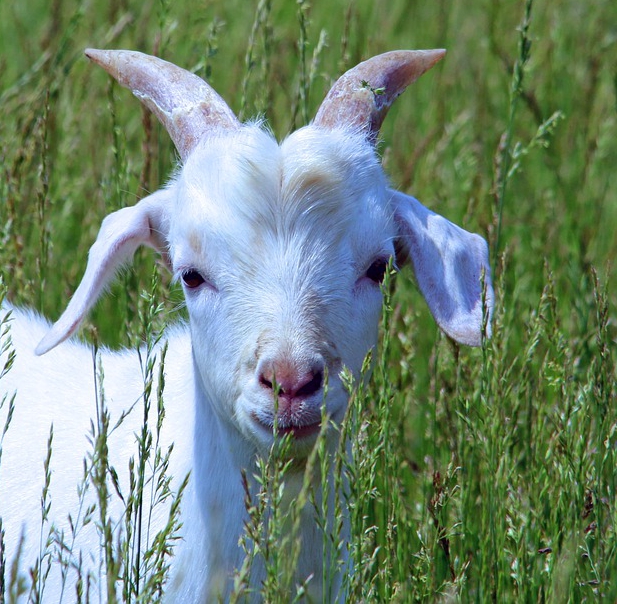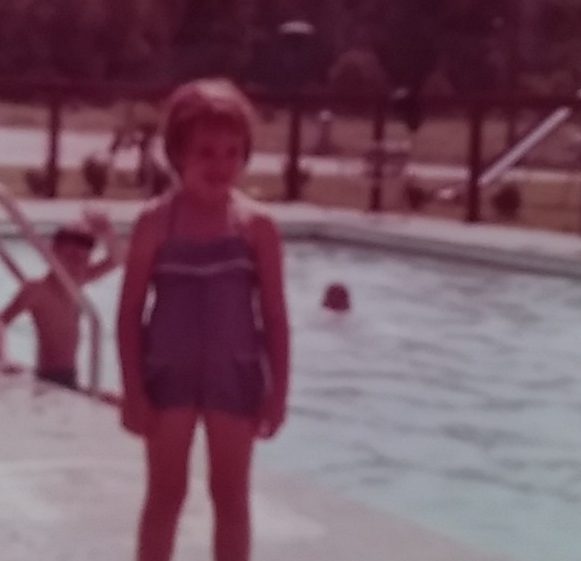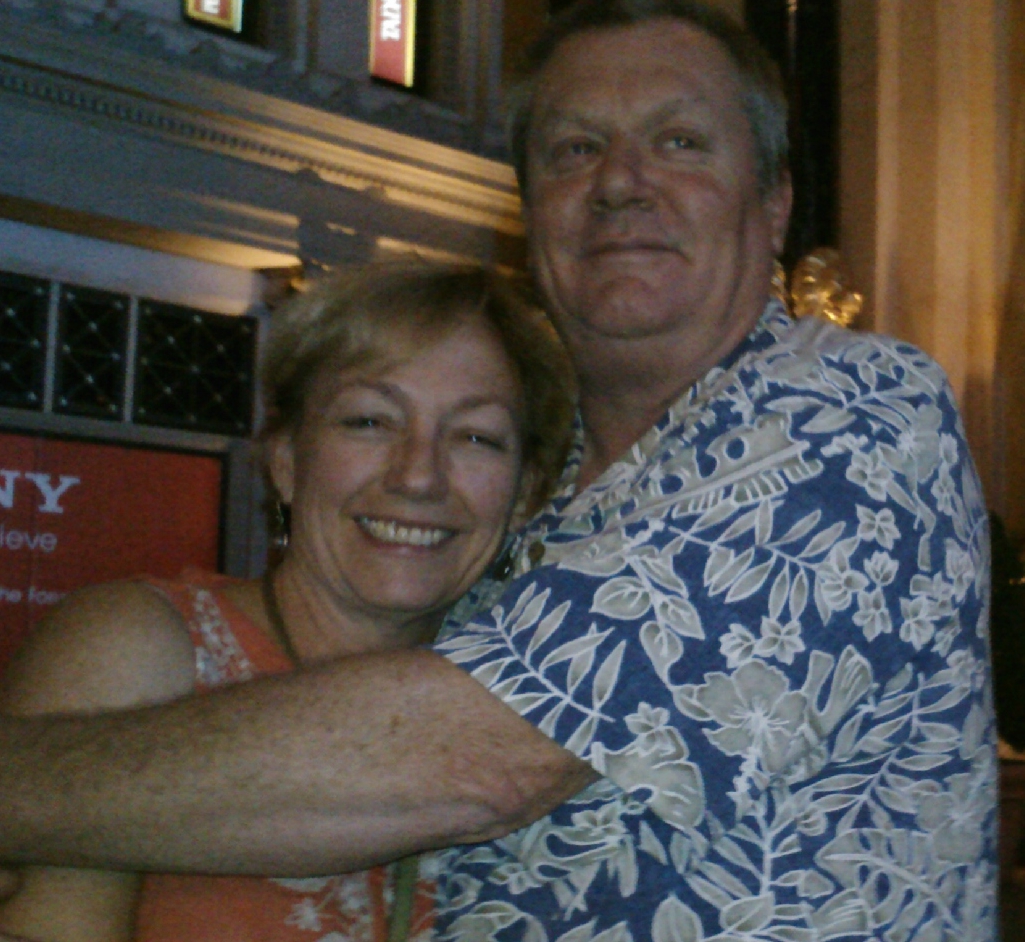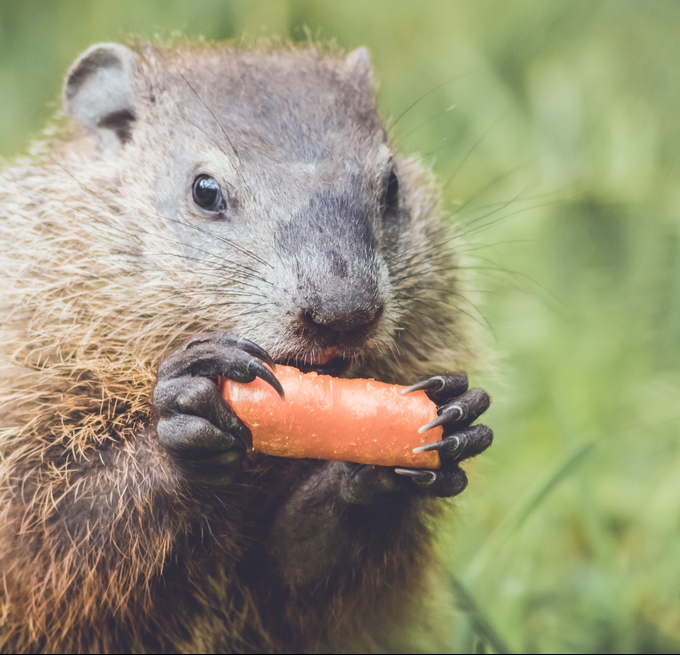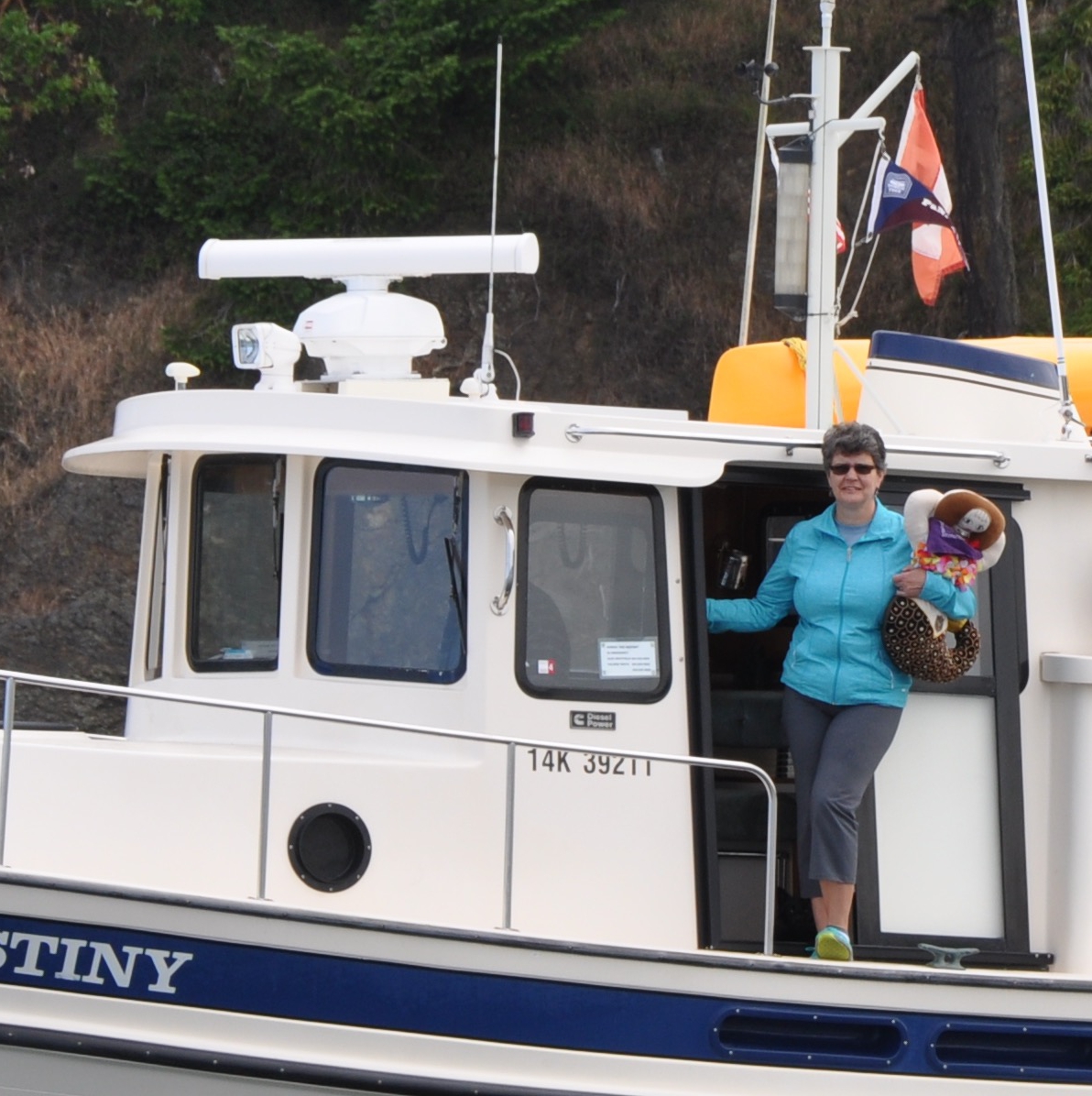For weeks my mother was perched on her wooden chair, chain smoking. Even when tempted by a movie, museum or trip to a favorite book store, she refused to leave the house.
One Saturday, I peeked in the kitchen and saw Time Magazine open on the kitchen table. But she wasn’t reading. Instead, she was staring at a spot on the ceiling as if there were someone or something suspended there speaking to her.
Her lips were moving, but her voice was soft and barely audible. She sang a strange melody, simple, soothing like a lullaby. The words were strange, foreign, from a different time and place. One word was repeated, nani nani. I tried to ask her what the song meant and when she first heard it, but she couldn’t see or hear me; for her, I was air.
I escaped to my bedroom, knelt on my blue shag rug, rested my folded hands on my blue bedspread, opened my Bible, and read how the earth swallowed up the Hebrews that turned against Moses and Aaron. Then I read Paul’s letter to the Corinthians from the New Testament, “Love is patient and kind; love is not jealous or boastful; it is not arrogant or rude.”
Leaving the Bible on my bed, I lay down on my rug with my legs pointed straight ahead and my arms stretched behind my head with my elbows to my ears. I lifted my legs two inches above the ground, moved them apart, brought them back together, and then let them fall the ground, counting to thirty each time. After repeating this exercise several times my stomach tingled and burned, and I felt my nightgown become moist from my sweat.
Then, kneeling with the long wool threads pressing into my skin, I bowed down with my elbows on my bed, pressed my hands together with all my strength and said six “Hail Marys” and six “Our Fathers.” I mustered up all the power I had in my body, and directed it to the sky until I felt myself shaking and sweating, begging anyone, anywhere to help bring her back to me. Then, right when I felt I would collapse from despair, a warm glow moved down from my head to my heart, and then down to my toes. I felt connected to something massive. Reliable. Eternal. I was safe.
My father, brothers and I said nothing to each other and did nothing and waited, hoping that slowly she would find energy again to walk back to the town center and come back with the morning paper like she usually did.
After three days she slowly brightened, and on Saturday morning she walked to the town center and bought groceries. Sunday morning, she was calm and alert end even smiled. She made me French toast and hot chocolate. She was my mother again. All my praying must have worked, just as it had done in the past.
A month later, she gave me a note for my sixth grade teacher telling her I’d miss a whole week of school. We were flying from Boston to Iothoni, Greece to visit my grandmother’s birthplace. My father and four brothers weren’t coming with us. The trip was just for us girls.
After seeing my mother sitting on the same wooden chair in the kitchen, it was hard to imagine her finding her way in a foreign country. If she failed as my guide, I would be left on my own.
The minute we landed in Athens, my mother seemed right at home. She took charge. She chatted away in gibberish filled with “k’s” and “th’s” to find the shuttle bus to our hotel, and then after we settled in, we walked together to a café on a busy Athens street that served a yummy dish made from meat and pasta.
She felt comfortable chatting up complete strangers. Our waiter wrote on the back of my boarding pass the number of the bus that would take us to the town closest to my grandmother’s village. An elderly woman brought us to our bus stop in Athens. At the taxi stand in Corinth, she found a driver named Dimitri who agreed to take us to Iothoni.
She sat in front, while I was squished in back with the suitcases. She pointed and asked questions, and turned back and translated, telling me that the Corinth Canal cuts through the narrow Isthmus of Corinth and separates the Peloponnese from the Greek mainland, making the peninsula an island. Then she turned back to the driver and he rattled on and on, while my mother snuck a peek at me and rolled her eyes. I understood whatever he said wasn’t worth translating.
As we make our way towards Iothoni, one cement building after another was slowly replaced by open fields and green pine forests. The highway gradually transformed from two cement lanes to one lane of patchy asphalt, to a narrow road made from chalky gravel. A herd of goats, bells clanging, gathered by the side of the road, surprised by our arrival. The plain gradually changed into a slope that grew steeper as we climbed. Ancient olive trees with gnarly roots clung onto the hillside.
One woman, wearing a black dress and kerchief, reached up to an olive branch with its silver leaves shining in the sun. She turned and waved to Dmitri when he honked. Another woman did the same as we passed. I wondered if they knew Dmitri, knew we were visitors from America, or just waved at every car that drove up that gravel road.
I asked my mother why all the women picking olives wore the same plain black dress. She explained that they were mourning the death of their husbands. Her mother even told her that there was a verb in Greek for women “to wear black,” but she couldn’t remember what it was. Once the women in the village were widowed they wore black dresses for the rest of their lives.
I wondered how there could be so many widows in this little village. After my mother’s first husband died she married my father. I tried to imagine her staying single for the rest of her life, wearing the same black dress as her neighbors, reaching up to pick a ripe olive, waving at Dmitri driving up the hill.
The gravel road ended at a white cement taverna nestled in the elbow of two adjoining hills. There were a dozen or so men seated around square wooden tables, playing some sort of game. A narrow dirt path reached up the slope with small white sugar cube houses lined up on either side.
My grandmother’s sisters ran gingerly to greet us, even though they were both over ninety. Both wearing black, one was noticeably taller and straighter than the other. I smiled shyly and whispered – kali sperasas good morning. They jogged up the hill while we fell behind struggling with our suitcases. A wooden plank to their doorway covered a gushing brook like a drawbridge leading to a castle. I was amazed to discover that the cool water that flowed from the mountain was used for drinking, washing, and bathing. I could reach down and scoop up the cool clear liquid any time of day, whenever I was thirsty.
The main room used as a living room, dining room and kitchen. Besides the small square table, there was only one other piece of furniture, a dark wooden chest covered with a white embroidered tablecloth. On top there was a yellow marble egg the size of a football that had painted on it the Virgin Mary wearing a red robe holding the Christ child. Next to it there were ten small paintings of different robed and haloed saints crowded together. On the wall above there were six paintings of saints grouped like bowling pins, one on top, two in the next row and then three on the bottom. A lit candle in an iron holder was hanging from the wall. The paintings were soiled from the candle’s smoke, so the faces were dark and cloudy.
While I moved over to get a closer look, my mother told me that every house in the village had icons. She even had a shrine in the kitchen where she grew up in Nashua, New Hampshire. I was amazed, assuming my mother had always been Roman Catholic. She told me that she actually practiced three religions. She was Greek Orthodox as a child, Lutheran for her first husband, and then converted to Catholicism for my father. It seemed impossible to me that my mother could change her beliefs twice.
“Which religion do you believe in now?”
“After converting so many times I can’t believe in God or any one religion.”
I wondered if losing her childhood faith made her fall into a deep pit of doubt. My readings gave me a sense of something stable reaching back into time and moving forward. If she could feel this too, I wondered if she could be spared her dark days.
While my mother sat at the small wooden table and swapped stories with my grandmother’s sisters, I wandered into the backyard and sat cross-legged on the rough grass. Along the right-hand fence there were tall tomato plants tied to sticks, and eggplants, zucchinis, and lettuce waiting to be picked. A homemade chicken coop sat in the left-hand corner made from mismatched pieces of metal.
The chickens were roaming freely throughout the backyard. A baby goat charged through a flock of hens to press his head into my outstretched palm. There was an innocence and playfulness that was surprising from an animal I’d never seen before. I felt as we were long lost friends. He repeated the game over and over again. I giggled when the buds of his horns tickled my skin. I imagined taking him home with me, and playing with him in our backyard like a Labrador retriever.
As the sun sank in the sky there was a chill in the mountain air, so I joined my mother in the kitchen to warm up with a cup of lemony tea. The taller woman asked if we wanted chicken or meat for dinner. After we chose, we heard a commotion outside: running, feathers flapping, squawking, a thumping noise and then silence. I couldn’t bear wandering in the backyard to see which chicken was slaughtered. It would have broken my heart if we ordered meat and that adorable baby goat became our dinner. I guiltily nibbled on the last piece of chicken that was only moments ago pecking at seeds.
My mother told me that she also lived off the animals and vegetables in her backyard during the Great Depression. To see a movie she handed over a homegrown head of cabbage. People who had nowhere to stay in the cold winter slept on a couch in her kitchen by the stove. My grandmother put warm glasses on their backs to ease their aches and pains and read their future in their coffee grounds. She said people were happy then, because everyone had the same: absolutely nothing.
I compared my mother’s childhood to her life in our sprawling split level in the suburbs. We had three empty bedrooms and all the modern conveniences, but no one came to visit us. We had a backyard filled with grass and weeds, but we never went there to sit or rest. There was nothing growing there, no animals to play with, and for months every year it was covered with snow.
Shortly after dark we retired to the short woman’s bedroom. I hadn’t gone to bed that early since fourth grade. We had a single candle on the nightstand by the iron bed that my mother and I shared. There weren’t any cupboards or bookshelves. My mother explained that no one in the village could read or write. It was incredible to think that my mother studied at Harvard, while her mother was illiterate.
After a light lunch of salad and fresh goat cheese the next day, my mother said that Dmitri was on his way to collect us. I was sad to leave even though there was very little for me to do in Iothoni. The taverna where the men played games was off limits. When I wandered up and down the narrow mountain paths all morning I didn’t see any kids. My mother told me that most of the young families moved to Athens and one day Iothoni might be abandoned like the other mountain villages.
It was sad that one day Iothoni might just disappear. There was a sweet smell in the air, and it was cool fresh and clean, and there was the purity of leading a simple innocent life. People were accepted for who they were, and everyone knew where you came from, and everyone seemed the same.
Before we left, my mother slipped some bills under her pillow. She had gone to America, the land of opportunity, and was expected to give money back to her relatives after finding a better life. But in my young mind we were paying them for a voyage back in time, to her childhood, to her safe place. I’d never seen her happier.
This place was safe not just for her, but also for me, and the thought of leaving the hot sun, the smell of sweet rosemary, and the mountain cliffs to return to that stuffy kitchen, made me want to move into the sugar cube house and live there forever. But the reality that there was no future here, and it was sad that my mother’s roots were rotting away from under her.
After we returned to Boston, my mother slowly retreated. She smoked cigarette after cigarette, sipped her coffee, became silent, slowly folding into herself.
One afternoon, when I opened the kitchen door, I was surrounded by a cloud of cigarette smoke. There was a cigarette still burning with hot ashes about to fall onto an open newspaper.
“Mom, careful, you’ll burn the house down!” She didn’t answer. I reached over to extinguish the cigarette, and noticed that her lipstick stained coffee cup was empty.
Her gaze was directed up to the ceiling but her eyes were closed. Her eyes darted back and forth and her eyebrows were crossed as if she were straining to understand things that only she could hear. Her lips were moving, but no sound was coming out.
“Mom, what are you saying? I can’t hear you.” She didn’t open her eyes or answer me. Instead her voice became stronger until I heard the same song again.
“Nanni, nanni, naan.”
“Mom, can I make you some fresh coffee?” She kept singing softly, her gaze never left the ceiling.
I decided to give her time. Something about twilight, moving from daytime to darkness, usually made her wake up from her dream. By then she would be hungry and I could make her a sandwich and a fresh cup of coffee.
To comfort myself, I did my readings. As I prayed and felt a sense of calm, I remembered her smiling, listening to the chatter of her grandmother’s sisters. I hoped that when she went away, she was back in Iothoni, her own safe place in her mind. I prayed that she wouldn’t go to that dark place that made her quiet and distant. I begged that an angel could help her feel a warm and safe glow moving from her head to toes, the same way I felt when I prayed and when I felt the buds of that little goat’s horns pressed against my outstretched palm.
Susan Cohen lives north of Tel Aviv where she is co-founder of a PR firm promoting Israeli high tech companies. Her work has appeared in Cyclamens and Swords, All Things Girl, and the Adanna Literary Review and was shortlisted twice for Glimmer Train Short Story awards. When she isn’t clicking away at the keyboard she’s training at the gym, using power tools for a search and rescue team, or rambling on and on at a book club.
